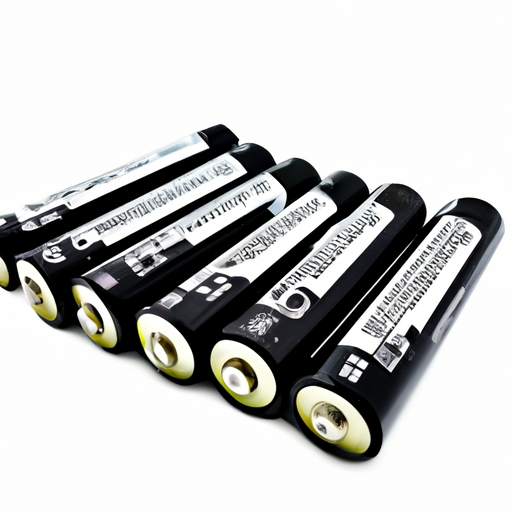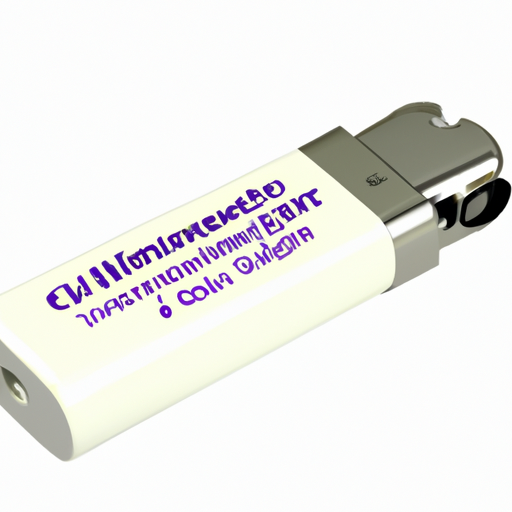What are the Product Standards for Registration of Imported Battery Products in Shanghai?
I. Introduction
The battery market in Shanghai has seen significant growth in recent years, driven by the increasing demand for portable electronic devices, electric vehicles, and renewable energy storage solutions. As a major economic hub, Shanghai attracts numerous international manufacturers looking to import battery products. However, navigating the regulatory landscape can be complex, making it essential for businesses to understand the product standards required for registration. This article aims to provide a comprehensive overview of the product standards for imported battery products in Shanghai, highlighting the regulatory framework, types of batteries covered, testing requirements, and the registration process.
II. Regulatory Framework
A. Overview of Relevant Regulatory Bodies
In China, several regulatory bodies oversee the importation and registration of battery products. The key organizations include:
1. **Ministry of Ecology and Environment (MEE)**: Responsible for environmental protection policies, the MEE plays a crucial role in regulating the environmental impact of battery products.
2. **State Administration for Market Regulation (SAMR)**: This body ensures product quality and safety standards are met, overseeing the registration and certification processes for imported goods.
3. **Shanghai Municipal Bureau of Ecology and Environment**: This local authority implements national regulations at the municipal level, ensuring compliance with environmental standards specific to Shanghai.
B. Key Regulations Governing Battery Imports
Several laws and regulations govern the importation of battery products in Shanghai:
1. **Environmental Protection Law**: This law mandates that all products, including batteries, must comply with environmental standards to minimize pollution and waste.
2. **Product Quality Law**: This legislation ensures that all products meet specific quality and safety standards before they can be sold in the market.
3. **Standards for the Safety of Battery Products**: These standards outline the safety requirements that battery products must meet to prevent hazards such as fires and explosions.
III. Types of Batteries Covered
The product standards apply to various types of batteries, including:
A. Primary Batteries (Non-rechargeable)
These batteries are designed for single-use applications and include alkaline and lithium batteries. They are commonly used in household items like remote controls and flashlights.
B. Secondary Batteries (Rechargeable)
Rechargeable batteries, such as lithium-ion and nickel-metal hydride (NiMH), are widely used in consumer electronics and electric vehicles. Their growing popularity necessitates stringent safety and environmental standards.
C. Specialized Batteries
Specialized batteries, including lead-acid batteries used in vehicles and industrial applications, also fall under the regulatory framework. These batteries often have unique safety and environmental considerations.
IV. Product Standards and Testing Requirements
A. National Standards (GB Standards)
In China, the GB (Guobiao) standards are the national standards that apply to various products, including batteries.
1. **Overview of GB Standards Applicable to Batteries**: These standards cover safety, performance, and environmental impact, ensuring that imported batteries meet the necessary requirements.
2. **Specific Standards for Different Battery Types**: Each type of battery has its own set of GB standards. For example, lithium-ion batteries must comply with GB/T 31241, which outlines safety requirements for lithium-ion battery packs.
B. Testing and Certification Processes
The testing and certification process for imported battery products involves several steps:
1. **Pre-market Testing Requirements**: Before entering the market, batteries must undergo rigorous testing to ensure compliance with GB standards. This includes performance tests, safety assessments, and environmental impact evaluations.
2. **Certification Bodies and Their Roles**: Designated certification bodies, such as the China Quality Certification Centre (CQC), are responsible for conducting tests and issuing certificates of compliance.
3. **Documentation Required for Testing and Certification**: Importers must provide detailed documentation, including product specifications, test reports, and safety data sheets, to facilitate the certification process.
V. Environmental and Safety Considerations
A. Compliance with Environmental Regulations
1. **Waste Management and Recycling Requirements**: Importers must adhere to regulations regarding the disposal and recycling of batteries to minimize environmental impact. This includes compliance with the Extended Producer Responsibility (EPR) framework.
2. **Restrictions on Hazardous Substances (RoHS Compliance)**: Batteries must comply with RoHS regulations, which restrict the use of hazardous substances in electrical and electronic products.
B. Safety Standards
1. **Fire and Explosion Risks**: Safety standards address potential fire and explosion risks associated with battery products, particularly for lithium-ion batteries, which can be volatile if not properly manufactured and handled.
2. **Transportation Safety Regulations**: Batteries are classified as dangerous goods during transportation, necessitating compliance with specific regulations to ensure safe shipping and handling.
VI. Registration Process for Imported Battery Products
A. Step-by-step Guide to the Registration Process
1. **Pre-registration Requirements**: Importers must ensure that their products meet all applicable standards and regulations before initiating the registration process.
2. **Submission of Documentation**: A comprehensive set of documents, including test reports, product specifications, and safety data sheets, must be submitted to the relevant authorities.
3. **Review and Approval Timeline**: The review process can take several weeks to months, depending on the complexity of the product and the completeness of the submitted documentation.
B. Common Challenges Faced During Registration
1. **Language Barriers**: Non-Chinese speakers may face difficulties in understanding local regulations and completing necessary documentation.
2. **Understanding Local Regulations**: The regulatory landscape can be complex, and importers must stay informed about any changes to laws and standards.
3. **Navigating Bureaucratic Processes**: The registration process can be bureaucratic, requiring patience and persistence to overcome potential delays.
VII. Consequences of Non-Compliance
A. Legal Implications
Failure to comply with product standards can result in legal action, including fines and product recalls.
B. Financial Penalties
Non-compliance can lead to significant financial penalties, impacting the profitability of imported battery products.
C. Impact on Market Access and Reputation
Non-compliance can hinder market access, damage a company's reputation, and erode consumer trust.
VIII. Conclusion
In conclusion, understanding the product standards for the registration of imported battery products in Shanghai is crucial for businesses looking to enter this dynamic market. Compliance with the regulatory framework, including environmental and safety standards, is essential to ensure successful market entry and long-term sustainability. As the battery market continues to evolve, staying informed about future trends in regulations will be vital for manufacturers and importers alike.
IX. References
1. Ministry of Ecology and Environment (MEE) - Environmental Protection Law
2. State Administration for Market Regulation (SAMR) - Product Quality Law
3. National Standards of China (GB Standards) - Safety Standards for Battery Products
4. Shanghai Municipal Bureau of Ecology and Environment - Local Regulations on Battery Imports
5. China Quality Certification Centre (CQC) - Certification Processes and Requirements
This comprehensive overview provides a structured understanding of the product standards for imported battery products in Shanghai, equipping businesses with the knowledge needed to navigate the regulatory landscape effectively.













